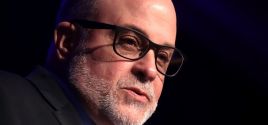Police: An Army By Any Other Nameby Becky AkersFeb. 15, 2012 |
Popular 
House Passes 'Antisemitism Awareness Act' to Silence Criticism of Israel as Hate Speech

Zionist Mob Attacks Pro-Palestine Protesters at UCLA While Screaming 'Second Nakba'

"I've Never Seen This Many Police": NYPD Launch Crackdown on Pro-Palestine Protesters at Columbia

'We Own This Country': Mark Levin Says Pro-Palestine Protesters Should be 'Rounded Up and Deported'

Israel-Ukraine $95B Aid Bill Includes Provision to 'Supercharge Mass Migration From the Middle East'
 States and localities across the country are wielding the Tenth Amendment against the heinous NDAA of 2012, promising to nullify its anti-constitutional threat of “indefinitely detaining” us. For example, “commissioners” in Kansas’ Cherokee County “may vote on a resolution condemning sections of the NDAA as a violation of several provisions in the U.S. Constitution … The proposed resolution notes that the military policing of citizens ‘is repugnant to a free society.’” Actually, policing is repugnant to a free society. Exactly who carries out such tyranny, whether “police forces” or an army, is largely a matter of semantics. But in dumbed-down America, propaganda and a deft change in terminology often fool the sheeple. Police are nothing less than soldiers a country’s rulers turn loose on its taxpayers. Such troops have seldom been armed as heavily as those sent against external enemies, but America’s increasingly “militarized” cops flout that rule of thumb. And that brings us full circle, because prior to the nineteenth century, regular armies “policed” cities. One fabled incident from America’s colonial history illustrates this. In 1770, the British Army’s policing of a town in Massachusetts culminated in the Boston Massacre. The Army’s 19 months of invasion — sorry, policing there before the Massacre had been typical. Nor was Boston the only city so cursed. At home in England, riots regularly rocked eighteenth-century London. And the government just as regularly sicced its enforcers on the dissidents. Any army’s raison d’etre is to impose rulers’ whims on those refusing to obey. It mattered not whether the rebels were French cavalry, Prussian cannoneers or beleaguered British citizens whose taxes financed the infantry shooting at them. Or American colonists becoming uppity and tiresome in their protests. Bostonians had been among the most vocal in their opposition to such incipient dictatorship as the Stamp Act of 1765. They also objected to paying customs duties — vehemently. In fact, they had driven the vermin that stole this money for the king out of their city. Ann Hulton’s brother was among the tax-collectors who fled; she wrote, “Every officer of the Crown that does his duty is become obnoxious & they must either fly or be sacrificed. … These Sons of Violence after attacking Houses, breaking Windows, beating, Stoning & bruizing several gentlemen belong’g to the Customs, the Collector mortally & burning his boat.” And so the government sent troops to help Customs rob the colonists. That remains cops’ chief function today. They ticket drivers while arresting and delivering other victims to the State so it can fine them or feed them to the prison-industrial complex — all while burbling that this somehow “protects” us. Adamantly refuting that claim are the corpses littering cops’ wake. Though the British Army in Boston slaughtered only 5 people in the “Massacre,” police kill an average of about 200 people every year — and that counts only the ones who expire “in custody,” not the dozens more who die as innocent bystanders or because police bust down the wrong door, and the householder, defending himself from what he assumes is a burglary, succumbs to a hail of “official” bullets. Adding insult to fatal injury, Our Rulers dub these unfortunates “Justifiable Homicides.” Though we are the geese laying Leviathan’s golden eggs, the beast does not mourn our deaths. Indeed, the U.S. Department of [In]Justice decrees that "the use of deadly force against a police officer is almost never justified, while the use of deadly force by police often is... [K]illings by police are referred to as ‘justifiable homicides,’ and the persons that police kill are referred to as ‘felons.’ " Yep, I’m dizzy, too, from such risibly circular “reasoning.” Read More |



